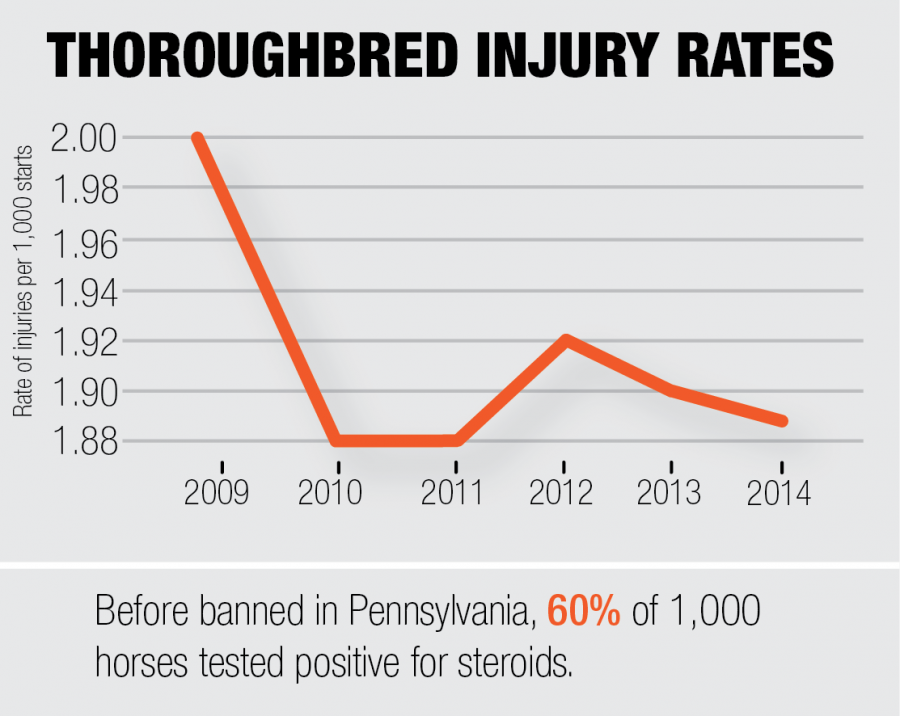Each year we don our biggest and brightest hats, pick the perfect tie to match our pastel suit, and we punch our tickets to Louisville, Baltimore and Belmont to watch our favorite horse have its shot at glory. On Saturday, 22 million other viewers and I watched American Pharoah become the first Triple Crown winner since 1978. However, as special as what American Pharoah just accomplished was, I seriously doubt that the horse felt the same elation as did his owner and jockey. Perhaps no other sport exploits its athletes to the same extent as thoroughbred racing. Witnessing history left me with a bitter taste.
Not just any horse can be plucked up from the family farm and become a champion. Becoming a racing champion takes hard work, determination, eugenics and steroids – lots and lots of steroids. Surprisingly, steroids weren’t even banned in horse racing until 2008. However, failed tests are still commonplace, and horses are allowed to intake steroids until 30 days before race time. These regulations are too loose.
In addition to being given medications that will directly improve their fitness, horses are also loaded up with painkillers and stimulants so they can train longer and harder. I understand that it would be tough to be the first owner to stage a steroid-free horse. If everyone else is doing it, then it would be much harder to win. It’s reminiscent of the professional cycling debacle of the last decade.
Proponents of horse racing will cite the improving statistics in regards to the frequency of horse injuries. I will grant that these statistics are promising; however, their defense of the sport that so willfully views horses as disposable is very weak. Pro-racing veterinarians claim that the injuries suffered by racehorses have allowed medical advancements in treating said injuries. One wouldn’t expect a doctor to break a child’s arm so that he could learn to fix it, so how does this explanation even suffice?
I propose that stricter standards be mandated. Any owner who is caught doping their horses should receive a suspension from racing their horse. This way the horse could catch a break and the owner would be the one who is punished. It seems incongruent to me that some sports would openly allow steroid usage, while others push to place anabolic perpetrators behind bars. With most professional sports leagues having a players union, there needs to be a person or group there to better stand up for the horses.
While this column may play little into solving the problems that so many thoroughbreds face, we should at least take the time to look past the pretty outfits and the mint juleps. Many of us witnessed history last weekend, and I hope that we can witness it again in the form of improved treatment of racehorses.
Eric Roddy is a senior majoring in philosophy. His column runs biweekly.









